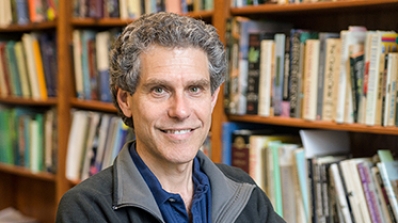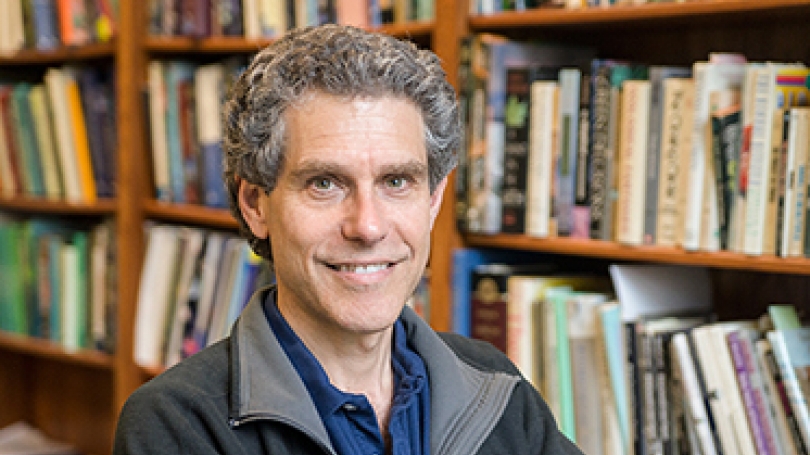Menu
First DartmouthX Online Course With edX Ready for Students
Preparing to teach the College’s first DartmouthX open online course has been a learning experience for environmental science Professor Andrew Friedland.
“The whole process has turned upside down my thinking on what constitutes learning, teaching, and the absorption of information,” says Friedland, who holds the Richard and Jane Pearl Professorship in Environmental Studies. “And it changed the way I presented my first ‘Introductions to Environmental Science’ class here at Dartmouth earlier today.”
An online listing of Dartmouth’s first massive open online course (MOOC), “Introduction to Environmental Science,” opened for enrollment this week on the website of edX, the nonprofit online learning consortium Dartmouth joined earlier this year. A link to the Dartmouth course page appears on edX’s equivalent of a course catalog, along with other courses from an array of institutions including ColumbiaX, UC BerkleyX, HarvardX, and IITBombayX.
The listing of Friedland’s DartmouthX class includes a course description, start date of February 3, 2015, course length of six weeks, estimated time commitment of five hours a week, and an introductory video showing Friedland talking about the class and visiting sites—a power plant, a hydroelectric dam—topics that will come up in the coursework.
The class allows for online communication with Friedland, four online teaching assistants who are Dartmouth students or graduate students, and others. After the six weeks, the class will be archived on the edX site and learners may still participate, but without live interactions.
The minute-and-a-half introductory video, produced by Dartmouth’s Media Production Group, has the feel of a trailer for a television science show. It begins with a graphic animation that sweeps to the Earth from space as Friedland narrates: “In the 1960s there were three billion people on Earth. Today there are 7.2 billion inhabitants impacting the natural world. …”
Over the past several months Friedland has met frequently with instructional designer Mike Goudzwaard, video producer Mike Murray, and a number of graduate and undergraduate students who will serve as teaching assistants for the course, and others in a collaborative process that was very different from what is typically the more solitary work of preparing a syllabus and lecture plan for an introductory class.
Josh Kim, Dartmouth’s director of digital learning programs, says the College has assembled an extensive DartmouthX team that includes instructional designers and technical support from the office of academic and campus technology services, course design, institutional research, and help with analytics from the Dartmouth Center for the Advancement of Learning (DCAL), video support from Media Production Group, and a dedicated library liaison.
“The edX course preparation process has been tremendous,” Friedland says. “I spent a good portion of the summer meeting frequently with our team, talking about what ideas to cover and how best to present them, and then actually trying to implement these learning objectives into course segments.”
Friedland is describing the central benefit of edX participation as it relates to Dartmouth’s educational mission, says Kim.
“The development process our faculty is undertaking in creating DartmouthX courses will ultimately enrich Dartmouth’s own classrooms,” Kim says.

